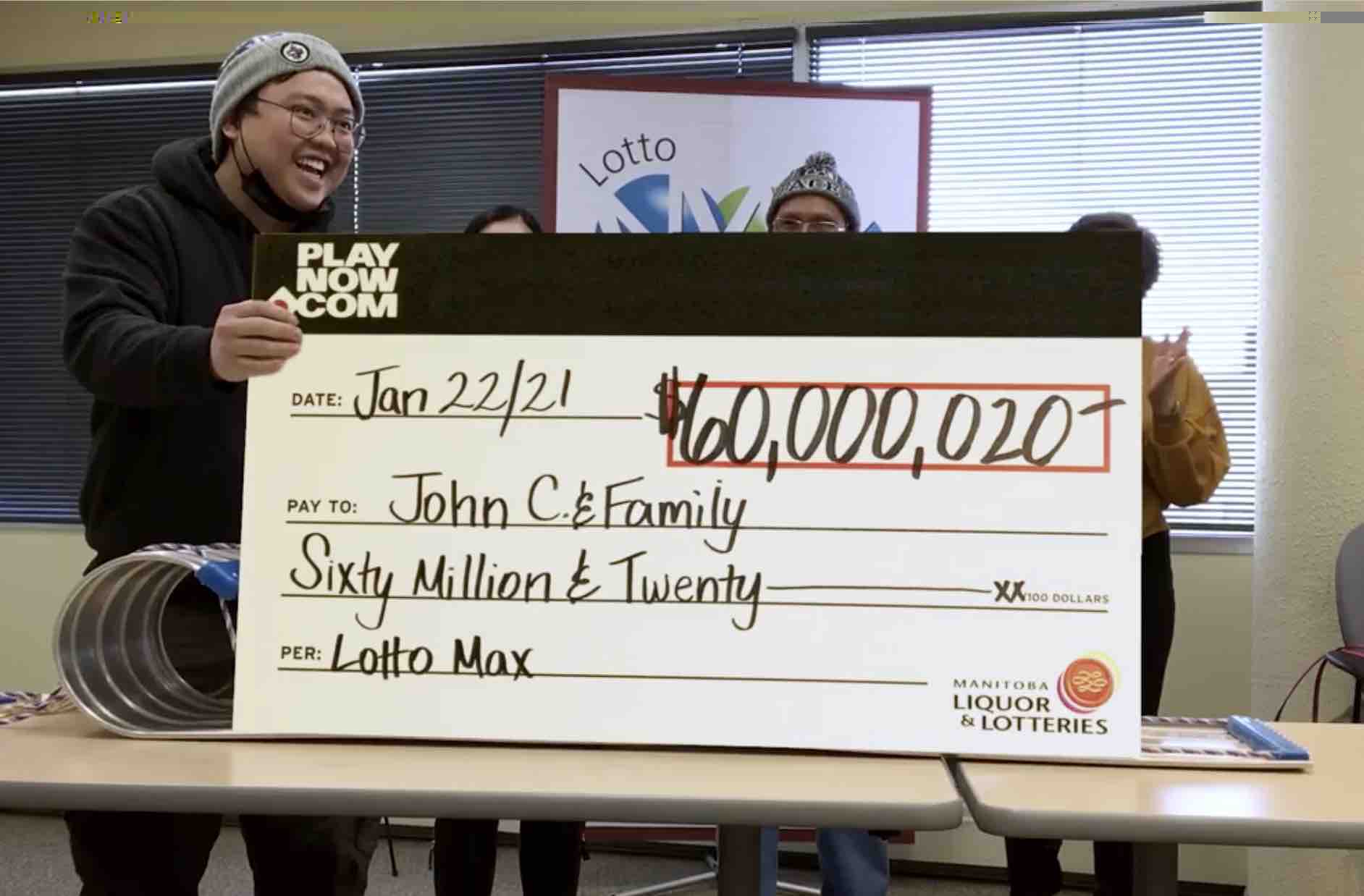Pinoy in Canada wins $60 million (P2.2 billion) jackpot, the biggest in Manitoba lottery
11, 21, 23, 25, 28, 41 and 43.
These were the numbers John Chua chose when he bought a lottery ticket online in Winnipeg, Canada. They turned out to be the winning numbers for the biggest lottery jackpot ever awarded in Manitoba and the biggest payout in Canada from a ticket bought online.
Chua won the Lotto Max jackpot of CAD$60 million (P2.2 billion), drawn on Jan. 22, and didn’t realize it until he got the email the next day.
He said in a video before he was presented the check, “I checked it and then I checked the website, and there it was, the green light, it didn't show up the morning before. And, yeah, I saw the green light, and then all the numbers highlighted on the ticket, and it says $60,000,020 bucks and two Free Plays.”
He added, “My mind just went blank. I thought, is this real?”
According to the Western Canada Lottery Corporation, Chua was awakened by his wife Jhoana early morning of Jan. 23 to tell him someone in Winnipeg had brought home the jackpot.
“I was jealous of whoever won, not knowing it was me,” he said.

Chua checked his PlayNow.com account early the morning after the Jan. 22 draw and didn’t see anything to indicate his ticket was the winner. Later in the day, he received the email.
“I thought it might be a Free Play or something. But it said $60 million—I was confused, so I checked on PlayNow.com when I got home,” he said. “And there it was; I didn’t see it earlier in the morning.”
He said that his mother Angie Chua thought he was pranking her again when he showed the website. “He always plays jokes—he’s a joker, so I didn’t believe it,” Angie said.
He said, “Then she asked me, ‘Is that really your ticket?’ I said, yeah, that’s the ticket,” but that it wouldn’t be real until they actually got the check.
“Now you’re here,” a representative of the Western Canada Lottery Corporation said prior to the check presentation.
“Now we’re not dreaming anymore,” his wife Jhoana Chua said.
Chua said he will take his time before spending the money. “I want to be wise. I have kids now, so I’m thinking for the future.”

According to the Western Canada Lottery Corporation news release, Chua is sharing the win with his wife Jhoana, mother Angie, and uncle Ben Lagman. The ticket also won two Free Plays. (He’d be the luckiest lottery player if those Free Plays won prizes too!)
Chua is one of 79,820 people of Filipino ethnic origin living in Manitoba (as of 2016), according to the Philippine Embassy in Ottawa website. More than 70,000 of them live in Winnipeg.
PlayNow.com, an online gambling website and lottery retailer in Manitoba, said the previous record was $50 million Lotto Max jackpot, which was won in 2009 by a couple from Sagkeeng First Nation. The next-largest lottery win in Winnipeg was a $27.2 million Lotto 6/49 prize won in 2005.
“Chua regularly picks up tickets on behalf of his family and he’s been buying them online since November, when retail sales of lottery tickets were restricted as part of Manitoba’s public health orders.”
Thus the mock check they awarded him had “John C. and Family” as recipients. The check was put on a mini sled on a table, which Chua pulled.

“It’s all yours,” he was told by a representative of the Western Canada Lottery Corporation.
“Thank you,” a beaming Chua said as he pulled the check with a rope.
Chua said he would probably keep playing the lottery online. “It’s a lot of fun. Being able to do it online was great. People talk about what they’d do if they win the lottery, but that won’t happen unless you buy a ticket.”
“It’s a huge blessing,” his wife said. “We’re all very thankful—we just needed a little bit and we got a lot.”
“I wasn’t really expecting anything. I was hoping for just a little to put toward a house,” he said. “There’s a lot of things that come to mind—but I’m going to take my time. I want to be wise. We’ve got kids and need to think for our future. I just want to take the time and do the smart thing.”
All revenues generated through Manitoba Liquor & Lotteries stay in Manitoba to support provincial, community and charitable groups. They also support government programs such as healthcare, education, social and community services and economic development.

